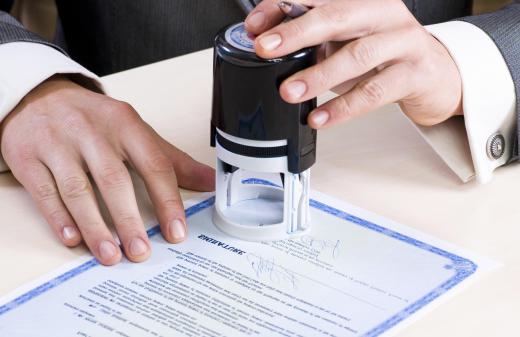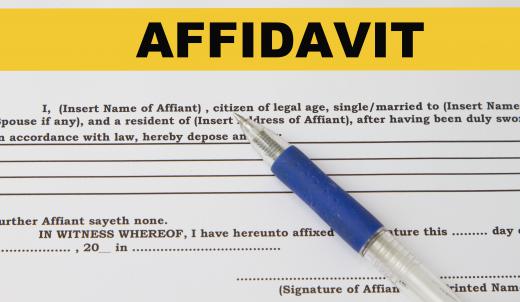
An affidavit of residency is a legal document that attests to the legal country, state, city, or township of residency of the person executing the affidavit. As with all affidavits, an affidavit of residency must be signed under oath and be notarized by a notary public in most cases. A residency affidavit may be required for a number of reasons, with the most common use being for educational purposes.
School corporations for grade school through high school often request the parents of a student to sign this type of affidavit when the legal residence of the student is unclear. Many school corporations operate on tight budgets and cannot afford to let children that actually live outside the district attend the schools within their district. When a family has recently moved into the district and is unable to substantiate their residence, or if a question or concern arises as to whether or not the child lives within the district, the school may require the parents to sign a residency affidavit.

Colleges and universities also frequently request students and/or parents to complete and sign an affidavit of residency for tuition purposes. Many state-supported universities offer substantially reduced tuition to in-state students. Verifying the residency of the student, therefore, can make a huge difference in the cost of attendance. A residency affidavit is generally required as a way to supplement additional documentation required by the college or university.

Another application of this type of affidavit is for tax purposes. When an individual has more than one home, he must declare one of them his official residence for purposes of paying taxes. Tax rates may vary greatly from one jurisdiction to another, so deciding which residence will be considered the primary residence can have monetary consequences.

Voter registration, vehicle registration, and driver licensing are additional areas where an affidavit of residency may be required to be completed. The right to vote is generally directly tied to where a person lives, so establishing a legal residence will determine where the individual may vote. The same applies to licensing a vehicle or obtaining a driver's license. The ability to license vehicles or obtain a license to drive may hinge on the applicant's proof that he is a resident of the jurisdiction.

Although other documentary evidence may be requested or used to prove residence, an affidavit of residency is often requested because of the legal nature of the document itself and the consequences of falsifying information in the affidavit. Signing an affidavit under oath often specifically includes the words, "I attest or affirm that the information contained herein is correct and true under the penalties of perjury," or similar words to the same effect. Essentially, anyone who lies on an affidavit may be charged with the crime of perjury, which offers the requester some additional assurance that the person executing the affidavit is telling the truth.
MyLawQuestions is dedicated to providing accurate and trustworthy information. We carefully select reputable sources and employ a rigorous fact-checking process to maintain the highest standards. To learn more about our commitment to accuracy, read our editorial process.
By Leigia RosalesLeigia Rosales is a former attorney turned freelance writer. With a law degree and a background in legal practice, she crafts compelling content that informs and engages readers. Her ability to understand complex topics and communicate them effectively makes her a valuable asset to any content creation team.